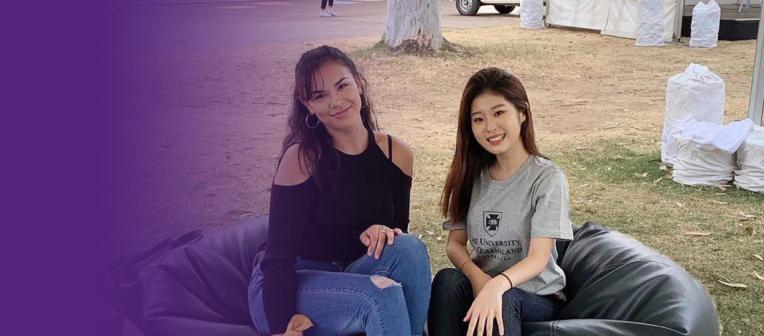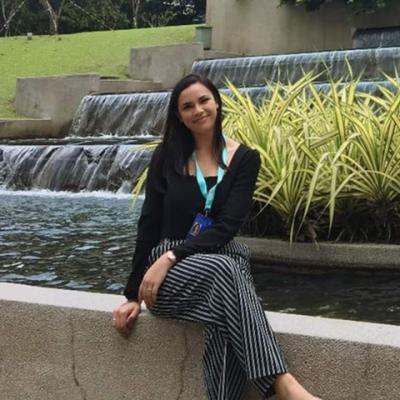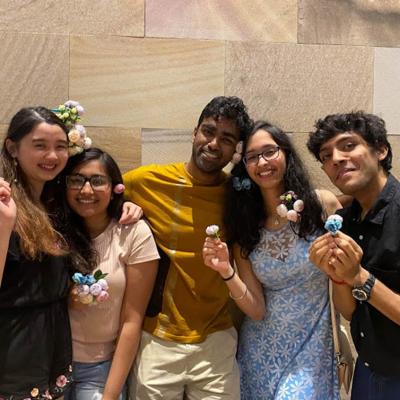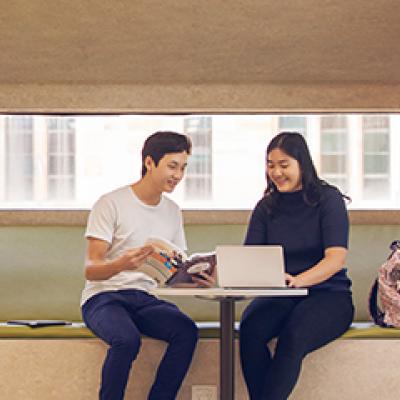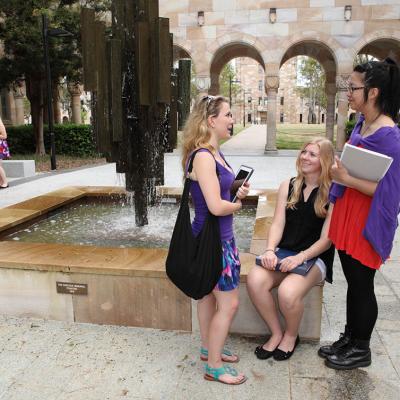What have you heard on the grapevine about The University of Queensland? Recent Bachelor of Communication graduate Ryuhyun (Vivian) Kim busts some myths you might have heard about UQ.
Choosing which university to go to is never an easy task, especially when you keep hearing different things about what studying at uni is really like. And, let’s be real, we’ve all heard a lot of rumours about UQ and other universities, so you might be not sure if applying to UQ is the right decision.
I’ll be honest with you.
Before I came to Australia from South Korea to study a Bachelor of Communication, I thought studying at UQ would be theory-focused and tedious. But now, as a graduate (hooray!) who has spent almost 4 years studying here, I can say these assumptions were mistaken.
And I’m not the only one whose thoughts have completely changed since I started my studies.
I spoke with two other recent graduates, Sarah Williams (Bachelor of International Studies) and Ian Sandford (Bachelor of Environmental Management with Honours and Master of Geographical Information Science), to debunk the three biggest myths about UQ.
Myth #1: UQ is an “exclusive” community
Among the rumours, we’ve all heard the one that UQ is only for students from private schools and elite backgrounds.
Coming from a public school, Sarah admits this discouraged her from seriously considering here at first. However, she’s glad she eventually changed her mind, because she believes a person’s educational or financial background doesn’t affect their academic performance – and she found this to be particularly true at UQ.
“I can genuinely say that my own experience has been filled with so much inclusivity, as well as plenty of friendly and down-to-earth people,” says Sarah.
“Some of my closest friends now are people who I met through uni.”
Ian’s reality at UQ was similarly different from the “elitist” place he had come to expect from the rumours.
“I had heard comments about UQ students thinking they were better, or had come from better backgrounds, so I was a little apprehensive about that,” he says.
“But in terms of the people I met, everyone was friendly and down-to-earth.”
“I had made good friends within the first year.”
UQ also has several support systems to provide opportunities to students from diverse backgrounds.
Plus, this is a university with a truly melting-pot-like community, filled with people from different cultural and social backgrounds.
To give you a little tip, join different clubs and societies. That’s where I met my new best friends.
UQ has more than 220 clubs and societies, so you’ll be able to easily find a bunch of like-minded friends, gain different experiences and learn new skills. Whether you secretly believe in the wizarding world of Harry Potter or love beating stress in dance classes, remember there are heaps of people like you here!
Myth #2: UQ is all about theory with little real-world application
Did you ever imagine that learning at UQ was going to be a whole lot of sitting in lectures and not much real-life learning? I bet you did, because I did too.
But my courses have been incredibly hands-on. I love learning by doing, and that's exactly what I got in all my courses. We always had industry leaders visiting our classes to give us the lowdown on what’s happening in their business in real time, and I've had some amazing opportunities to contribute to real client briefs through coursework and internships. Even outside of classes, UQ has different workshops and other experiences designed to help you refine your professional skills.
Ian explains that many lecturers are happy to take on student volunteers to help them or PhD candidates to carry out research.
“Students should take advantage of this as early as they feel comfortable,” says Ian.
“It’s good to take your first 2 or 3 semesters to get comfortable with studying at a university, make some friends and build a bit of basic knowledge about your area of study.”
“But, to accelerate this, it’s a great idea to volunteer in whatever opportunities you can find – this will help you a lot after university and make you stand out amongst your peers.”
These extracurricular activities not only let you apply your learning from classes to solve real-world problems, but they also help you build professional connections.
During Sarah’s Bachelor of International Studies, she interned at the Embassy of Ecuador in Australia and travelled to Kuala Lumpur, Malaysia as a delegate for the 10th University Scholars Leadership Symposium (USLS).
My experience – along with Ian and Sarah’s – is only a snapshot of what’s available here. UQ provides many ways to broaden your knowledge and skills and help your successful transition from student to professional.
Myth #3: UQ requires too much self-directed learning
Transitioning from high school to university is exciting. But, at the same time, it can be very daunting. You’re probably worried that studying at uni will be harder compared to high school study.
Well, I can’t lie – that’s true.
When you first start studying at university, it might take you a while to get used to self-directed learning. I went through this, and so did Ian.
“It’s difficult to come from very structured days in high school to having to build that structure for yourself around a few hours of class contact each day,” he says.
It’s challenging for everyone, but that doesn’t mean it always has to be that way.
Sarah suggests the best way to make things easier is to proactively seek assistance. There are no mandatory consultations with the teacher to check your progress like in high school, so you have to ask for help when you need it.
“At university, you have to ask for this support – this really frightened me, because I was scared to ask for help,” says Sarah.
“But I realised I had no reason to be, since the lecturers are always more than happy to provide feedback.”
“I have found the lecturers to be understanding and supportive, which has been really helpful during stressful periods.”
So, don’t be afraid to ask for help! Whatever questions or challenges you have in your life and study, the people at UQ are ready to help you.
Four years ago, I was going through what you’re going through now, so I understand choosing which university to go to might feel like the most stressful and important decision in your life. I truly hope this information has cleared some doubts and uncertainty in your mind, so you can consider UQ without any fake news getting in the way.

